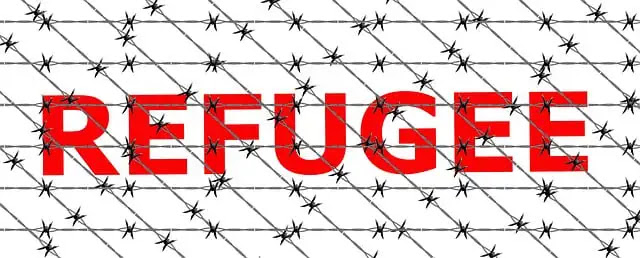The global refugee crisis is one of the most pressing challenges of our time. As of 2021, there are over 26 million refugees worldwide who have been forced to flee their homes due to persecution, war, or violence. The challenges faced by refugees are complex and varied, ranging from limited access to education, healthcare, and job opportunities, to trauma and mental health issues resulting from their experiences. In this article, we'll explore 50 facts about refugees, shedding light on the challenges they face and the opportunities for global communities to support them.
50 Facts About Refugees: Challenges and Opportunities for Global Communities
- A refugee is someone who has been forced to flee their home country due to persecution, war, or violence.
- As of 2021, there are 26.4 million refugees worldwide.
- More than half of all refugees are under the age of 18.
- The majority of refugees are hosted by developing countries.
- The top five countries hosting refugees are Turkey, Pakistan, Uganda, Sudan, and Germany.
- The majority of refugees come from Syria, Afghanistan, South Sudan, Myanmar, and Somalia.
- The average length of time a refugee spends in a refugee camp is 17 years.
- Refugees face many challenges, including limited access to education, healthcare, and job opportunities.
- Many refugees experience trauma and mental health issues as a result of their experiences.
- The United Nations Refugee Agency (UNHCR) is the primary international organization responsible for the protection and assistance of refugees.
- The UNHCR was established in 1950 and is headquartered in Geneva, Switzerland.
- The 1951 Refugee Convention is the primary international legal instrument that defines who is a refugee, their rights, and the legal obligations of states towards them.
- The right to seek asylum is protected under international law.
- Asylum seekers are individuals who have fled their home country and are seeking protection in another country.
- In 2020, the United States admitted 11,814 refugees.
- The number of refugees admitted to the United States has decreased significantly in recent years.
- The resettlement process for refugees can take years.
- Refugees undergo extensive background checks and security screenings before being approved for resettlement in a new country.
- Refugee camps are often overcrowded and unsanitary, leading to the spread of diseases.
- Many refugees face discrimination and xenophobia in their host countries.
- The integration of refugees into their host communities can be challenging.
- Refugees often face language barriers that make it difficult to communicate and access services.
- The process of obtaining legal status in a new country can be complex and time-consuming for refugees.
- Many refugees experience food insecurity and lack access to nutritious food.
- Women and girls are particularly vulnerable to sexual and gender-based violence in refugee camps.
- Many refugees have lost everything they own and have been separated from their families.
- The refugee crisis has been exacerbated by climate change, natural disasters, and environmental degradation.
- Climate refugees are individuals who are forced to flee their homes due to the impacts of climate change.
- The number of climate refugees is expected to increase significantly in the coming years.
- Many refugees have skills and talents that can benefit their host communities.
- Refugee entrepreneurship can help refugees become self-sufficient and contribute to their local economies.
- The resettlement of refugees can provide economic benefits to their host countries.
- The COVID-19 pandemic has had a significant impact on refugees, particularly in terms of access to healthcare and education.
- Refugee children are less likely to attend school than their non-refugee peers.
- Education is essential for refugees to rebuild their lives and integrate into their host communities.
- Many refugees face barriers to accessing healthcare, including language barriers and lack of insurance.
- The mental health needs of refugees are often overlooked and underfunded.
- The trauma experienced by refugees can have long-lasting effects on their mental health and well-being.
- The COVID-19 pandemic has highlighted the importance of ensuring that refugees have access to reliable information and communication tools.
- The internet and social media have become essential tools for refugees to stay connected with their families and communities.
- Refugee women face additional challenges, including gender-based violence and discrimination.
- The UNHCR has implemented programs aimed at empowering refugee women and promoting their participation in decision-making processes.
- LGBT refugees face unique challenges, including discrimination and persecution in their home countries as well as in their host countries.
- The UNHCR has implemented programs aimed at protecting and promoting the rights of LGBT refugees.
- Refugees have made significant contributions to the cultural and economic fabric of their host countries.
- The integration of refugees into their host communities can lead to increased social cohesion and diversity.
- Many refugees participate in community-led initiatives aimed at promoting social and economic integration.
- The UNHCR works with governments and other partners to provide education and vocational training opportunities for refugees.
- The resettlement of refugees is a shared responsibility, and it requires international cooperation and solidarity.
- Supporting refugees is not only a moral imperative but also a legal obligation under international law.
The refugee crisis is a complex global challenge that requires international cooperation and solidarity. By understanding the challenges faced by refugees and the opportunities for global communities to support them, we can work together to create a more just and equitable world. Whether it's through providing education and vocational training opportunities, supporting refugee entrepreneurship, or promoting social and economic integration, there are many ways we can make a difference. Let's commit to standing in solidarity with refugees and working towards a better future for all.







![[100+] गौरैया के बारे में रोचक तथ्य - Facts About Sparrow in Hindi](https://blogger.googleusercontent.com/img/b/R29vZ2xl/AVvXsEjAMPNSpkqO8-9akUiPokDXHagmsQFwp-aZl-19OFI6ZL3MLknwTd6PUp3aQy9z_kWHrPvtY1aKkGV8ybbyuIuobUEPhEq-ctYtgNg56vOT3Uui-kbyp476SdBCUQ3KRj0TpAxc4H84_K79/w100/ezgif.com-gif-maker+%25281%2529.webp)






0 Comments